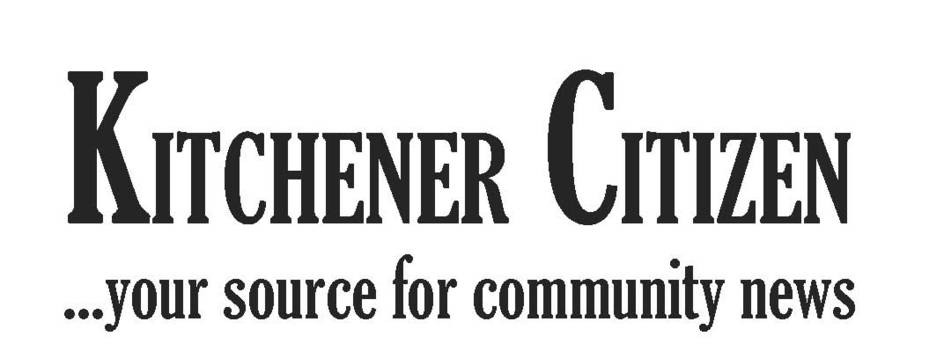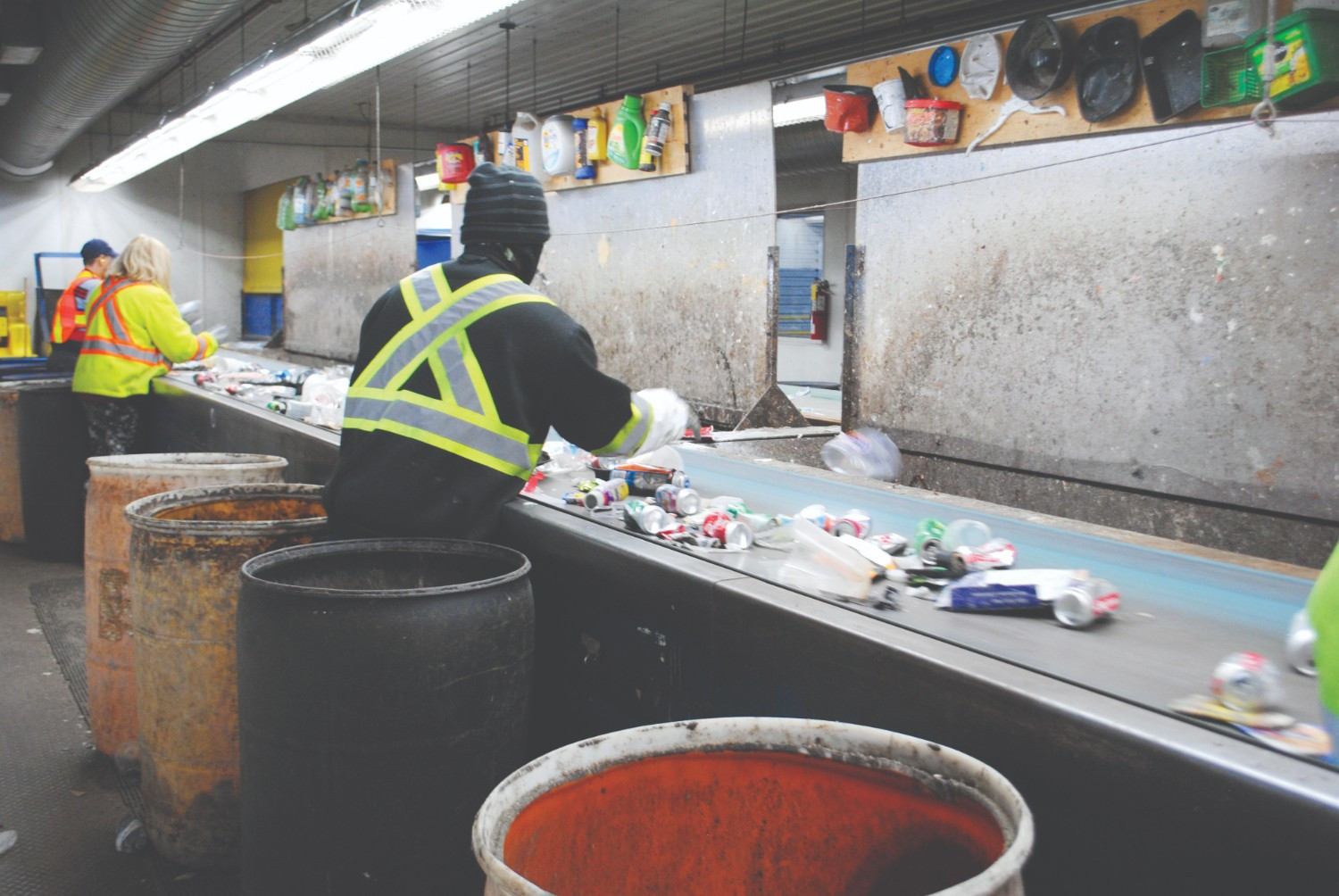

Changes coming in 2024 to blue box recycling in Waterloo Region
SORTING RECYCLABLES IN WATERLOO - When the Region of Waterloo’s recycling contract comes up for renewal in March 2024, companies that produce the packaging, such as soft drink companies, will become 100 percent responsible for the collection and management of recyclables. Photo by Helen Hall
For News Tips & Advertising call...
Kitchener East - 519-578-8228
Kitchener West - 519-394-0335
 by Helen Hall
by Helen HallKitchener Citizen
April 14, 2021
As of March 2024, the Region of Waterloo will no longer be responsible for managing the local blue box recycling program.
Provincial legislation will move 100 percent of the responsibility for collecting and recycling packaging material to the companies that put it into the marketplace. Some examples of those companies are Procter and Gamble, that makes cleaning products, and Coke and Pepsi, that packages soft drinks.
Currently, those companies are represented by Stewardship Ontario. Stewardship Ontario is a not-for-profit organization funded and governed by the
industries that are brand owners, first importers or
franchisors of the products and packaging materials
collected in blue bins.
Through Stewardship Ontario, the companies currently fund local municipalities with 50 percent of the cost of blue bin recycling. Those municipalities sell the packaging they collect - plastic bottles, tin cans, and bags - to recycling companies and keep the profit to help offset the remaining 50 percent of the blue bin cost that is covered by taxpayers.
Once the producers take over 100 percent of the responsibility for their waste, they may continue to contract some of the local work to the Region of Waterloo, or they may set up their own system.
“We may be out of the game, so to speak” said Mike Ursu, Operations Manager, Region of Waterloo Waste Management. The region has two landfills, located in Waterloo and Cambridge.
Ursu said there are several upsides for taxpayers when the new system starts in 2024. First, taxpayers will no longer be responsible for part of the cost of collecting and selling recyclable material. All costs (and profits) will be handled by the producers.
Second, there will be uniformity across the province as to what items are collected at the curbside. Currently, if you move from one municipality to another, you might find that the recycling rules are different. Ursu said the producers will be in charge of providing homeowners with blue bins, or they might opt for other containers like the large bins that resemble garbage cans that are used in Toronto.
Third, Ursu thinks it will make producers use materials that can be sold and reused, since they will be responsible for them at their ‘end of life’.
“Sometimes things are designed in the marketing division to make them eye catching,” Ursu said. Under the new program, the producers will want to get money back by being able to resell any packaging they use.
Because municipalities are currently responsible for collecting this packaging, recycling centres are located within each municipality. When the producers take over, they may opt to create their own recycling centres and put them closer to highways or other transit routes.
At the Nyle Ludolph Materials Recycling Centre at the landfill on Erb Street West in Waterloo, 75 percent of what they collect (by weight) is paper and cardboard, which is transferred to another recycling centre in Niagara. The other 25 percent of the weight is the packaging containers that are sorted and resold.
Ursu said the equipment at the recycling centre is near the end of its life, and the region will not be reinvesting in it. The employees who work there do not work for the region, but are part of the contract for recycling pickup that expires in March of 2024 - when the responsibility will transfer to the producers.
Ursu said the exact details of the changes are not known yet, and the region could still have some role in managing local recyclables under a contract with the producers. But the region will not be responsible for any of the cost.
The region will continue to be responsible for collecting garbage, green bins, and yard waste.